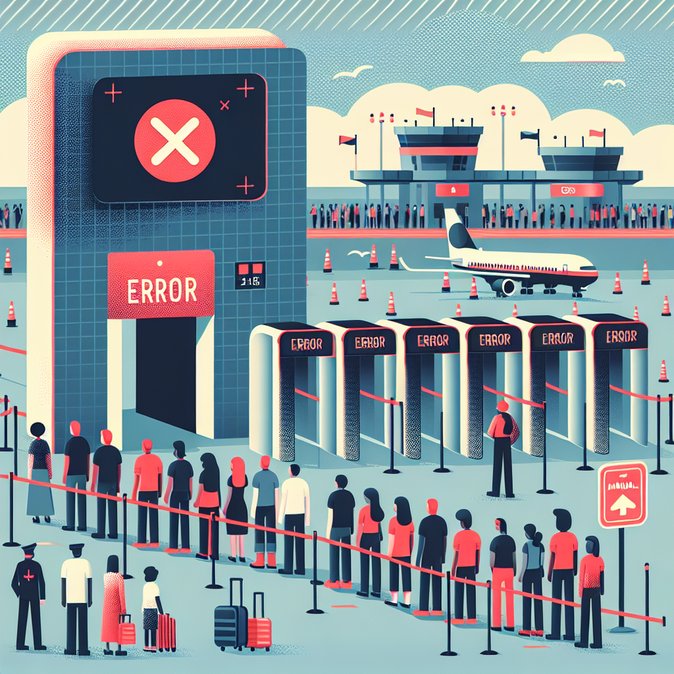
Just 24 hours after Tenerife South Airport (TFS) celebrated Spain’s first full Entry/Exit System deployment, a software glitch knocked out six of the ten biometric kiosks in the arrivals hall, forcing officers to revert to manual processing during Sunday’s morning wave of UK leisure flights. Lines of more than 1,000 passengers snaked through the terminal, with some travellers reporting waits of up to two hours.
Airport operator Aena confirmed that the outage stemmed from a firmware conflict between the kiosk cameras and the National Police fingerprint reader, an issue that had not appeared in pilot tests. Aena engineers applied an overnight patch and rebooted the affected units by early afternoon, but the incident highlights early-phase fragility in the EU’s €1.3 billion smart-borders programme.
![Passport-Kiosk Outage Triggers Hour-Long Queues at Tenerife South Days After EES Go-Live]()
From a mobility-management perspective, the disruption illustrates why employers should factor contingency time into itineraries during the EU-wide roll-out. Crew-rotation firms serving the Canaries said 17 cabin-crew members missed downstream connections to inter-island hops, forcing airlines to scramble reserves and incur overnight-stay costs.
The Tenerife business-chamber warned that repeated failures could dent peak-season confidence just as the archipelago gears up for winter sun demand. Aena and the Interior Ministry have promised daily health-checks on kiosk uptime and extra staff on standby until stabilisation metrics hit 99.5 % availability.
Travellers with fast-track passes were largely unaffected, underscoring the value of premium lanes for time-sensitive business visitors. Companies may wish to add fast-track fees to travel policies, at least until the EES teething period ends next spring.
Airport operator Aena confirmed that the outage stemmed from a firmware conflict between the kiosk cameras and the National Police fingerprint reader, an issue that had not appeared in pilot tests. Aena engineers applied an overnight patch and rebooted the affected units by early afternoon, but the incident highlights early-phase fragility in the EU’s €1.3 billion smart-borders programme.

From a mobility-management perspective, the disruption illustrates why employers should factor contingency time into itineraries during the EU-wide roll-out. Crew-rotation firms serving the Canaries said 17 cabin-crew members missed downstream connections to inter-island hops, forcing airlines to scramble reserves and incur overnight-stay costs.
The Tenerife business-chamber warned that repeated failures could dent peak-season confidence just as the archipelago gears up for winter sun demand. Aena and the Interior Ministry have promised daily health-checks on kiosk uptime and extra staff on standby until stabilisation metrics hit 99.5 % availability.
Travellers with fast-track passes were largely unaffected, underscoring the value of premium lanes for time-sensitive business visitors. Companies may wish to add fast-track fees to travel policies, at least until the EES teething period ends next spring.







